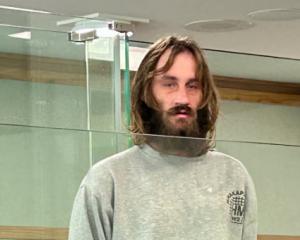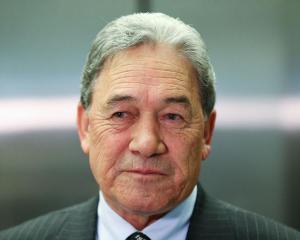
Prime Minister Jacinda Ardern says New Zealand will not join the countries that are signing up for a war against drugs that US President Donald Trump is pushing at the UN in New York.
Ardern is in New York at her first Leaders' Week since becoming Prime Minister and will listen to Trump's statement at the UN General Assembly on Tuesday night NZ time.
He has been campaigning for other countries to sign up to a Global Call to Action on the World Drug Problem, a paper which seeks a clampdown on drug smuggling and supply as well as other drug-related crimes. It has a special emphasis on synthetic drugs.
About 124 countries have already signed up, but Ardern said New Zealand will not be following suit indicating she believed it was too hard-line.
"There is a particular opiate focus. We have an agenda that is focused on addressing issues around drug use. We have a number of challenges that are quite specific to New Zealand and the type of drugs that are present, but also I'm taking a health approach.
"We want to do what works, so we are using a strong evidence-base to do that."
It is another example of the ever increasing distance between New Zealand, and several other countries, and the United States, following on from splits in their views on issues from trade and climate change accords to Iran.

Ardern said New Zealand still supported the agreement and believed it had achieved what it was intended to.
Trump is expected to discuss Iran in his statement, as he did last year, and a day later when he chairs a Security Council meeting.
That was originally intended to be on Iran, but the agenda has changed to the more general topic of non-proliferation of nuclear weapons - reportedly so that Iran's President Hassan Rouhani would not have to be given a right to appear.
It could put New Zealand in the bad books with the United States - in the lead up to the UN General Assembly, its permanent representative at the UN Nikki Haley warned that Trump would set down "a marker" for other countries: "While the United States is generous, we're going to be generous to those who share our values, generous to those who want to work with us, and not those that try and stop the United States or say they hate America, or are counterproductive to what we're doing."
Ardern said she believed multilateralism - in which countries work as a big group - was under threat but would not directly point the finger at the United States for that. She avoided answering directly any questions on the political climate in the US under Trump.
"Regardless of what's going on in the US generally as an international community, now is the time whether or not we are talking about trade, about issues of conflict, for us to reinforce that working collectively is incredibly important.
"There is not just one country which is challenging the rules-based system. We've seen at a number of levels - whether it is trade or the use of the veto power - there are challenges to a multi-lateral approach right now. We stand firmly in favour of using institutions like the UN, like the WTO, they're incredibly important to us.
"You think of the big challenges we have: terrorism, the spread of deadly diseases, climate change, all of those issues the most powerful of countries are powerless to address on their own."
Under Trump, the US has drawn back from multilateral trade agreements such as the Trans-Pacific Partnership and Trump has said the US will withdraw from the Paris Climate Change agreement in 2020.
Despite the obvious splits, Ardern said she believed the relationship between New Zealand and the United States had not significantly changed.
"When it comes to the US Administration of course we keep the same relationship that we've had in the past. It is a key relationship, particularly on issues round trade and we want to promote greater engagement with the US in our region."
She said as far as she was aware, she had not been invited to the White House and had no plans to do so.
She has not sought or been given a "pull-aside" or meeting with Trump. He will have meetings with South Korean President Moon Jae-in, Egyptian President Abdel-Fattah el-Sissi, French President Emmanuel Macron, Israeli Prime Minister Benjamin Netanyahu, Japanese Prime Minister Shinzo Abe and UK Prime Minister Theresa May.
Reform at the UN?
Early today, Ardern met with UN Secretary General Antonio Guterres and said she had raised New Zealand's long-standing objections to the veto power given to the five Permanent Members of the UN Security Council. Those countries are Russia, the United States, France, the United Kingdom and China.
Ardern said there were elements of change she was confident Guterres was addressing, but the veto was a difficult issue.
"The same challenges still exist, particularly when you look at the use of the veto power. That stood in the way of taking action on a number of significant issues. We need to make sure the UN remains relevant, that means being able to speak with one voice and that veto power has got in the way of that."
The biggest issue Guterres had raised in return was climate change. "In that regard, he acknowledged the role New Zealand has played and will continue to play."
She had spoken specifically about the impact of climate change in the Pacific.
She had not discussed former Prime Minister Helen Clark with him. Guterres had defeated Clark in the campaign to be the Secretary-General and Clark and Ardern are close. "I had no cause to."
Ardern said her job was to advocate for New Zealand and the wider Pacific and that was what she had used the meeting to do.
Travelling with Neve
Baby Neve was briefly glimpsed with father Clarke Gayford at the United Nations. Gayford is tagging after Ardern where possible so Neve can be fed.
A tweet from Gayford revealed Neve had kept her parents' up until 3.30am that day after landing after midnight.
Ardern said baby Neve was "probably more rested than I am." Asked how she had recovered, Ardern laughed and said "I'm not sure I have," before adding "with the support of others".












